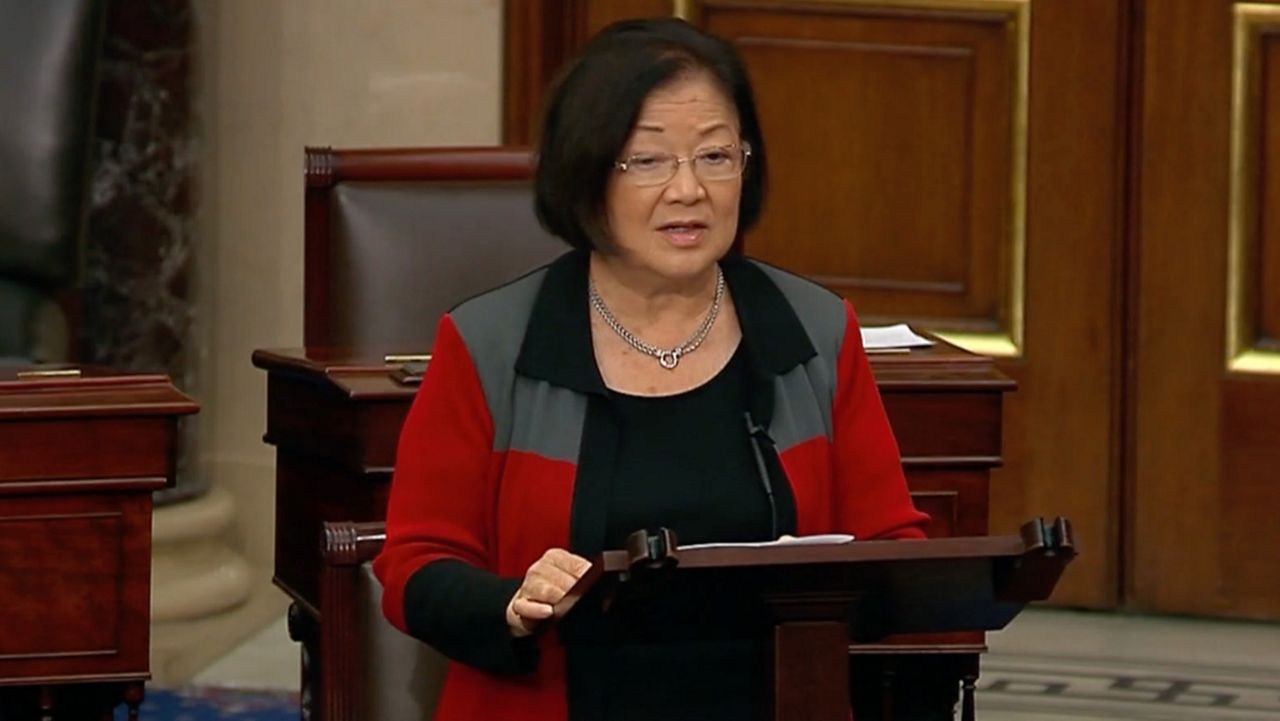WASHINGTON — U.S. Sen. Mazie Hirono and three other Congressional lawmakers reintroduced a bicameral, bipartisan measure that would allow for the collection of data about who people who apply for patents.
The lawmakers say the Inventor Diversity for Economic Advancement Act will help provide better understanding of the disparate rates at which women, veterans and other groups apply for patents in the United States.
The measure was originally introduced in 2021 but stalled after being reported with amendment by the Senate judiciary committee.
The judiciary committee is scheduled to consider the reintroduced measure at its executive business meeting on Sept. 19.
“In order for America to remain innovative and competitive on a global scale, we must include inventors from underrepresented groups across the country — such as women, veterans and communities of color — in our patent system,” Hirono said in a release issued on Thursday. “The IDEA Act will help us to better understand who is applying for patents so that we can focus resources and education to help more people participate in this important part of our economy.”
Hirono was joined by Sen. Thom Tillis, R-N.C., in introducing the bill in the Senate. The measure was co-sponsored by Sens. Dick Durbin, D-Ill.; Chuck Grassley, R-Iowa; Chris Coons, D-Del.; Richard Blumenthal, D-Conn.; Alex Padilla, D-Calif.; and Amy Klobuchar, D-Minn.
A companion measure was introduced in the House by Reps. Nydia Velasquez, D-N.Y., and Young Kim, R-Calif.
“For America to lead in today’s innovative, dynamic economy, we need all of our best and brightest minds at the table,” Kim said. “Unfortunately, Americans of different backgrounds can face barriers to making their ideas a reality. The IDEA Act aims to help us bridge the opportunity gap and identify barriers to developing patents.”
The lawmakers cited studies that show that women and other underrepresented groups apply for and obtain patents at significantly lower rates than the overall population. There is a no data to determine the rate at which service members and veterans use the patent system.
Under the IDEA Act, the U.S. Patent and Trademark Office would be directed to collect demographic data including gender, military or veteran status and race from patent applicants. The disclosure of data would be voluntary for applicants.
The bill would further require the USPTO to issue reports on the data collected and make the data available to the public, thereby allowing outside researchers to conduct their own analyses and offer insights into the various patent application gaps.
The measure has garnered broad support among research, technology and entrepreneurial organizations.
“As the U.S. heads into the next century of innovation and competitiveness, the IDEA Act will provide vital demographic data that can help inform policy-making and educational initiatives,” said Barbara Snyder, president of the Association of American Universities. “The Act will also enable academic research into inventorship and entrepreneurship.”
Andrei Iancu, former undersecretary of commerce for intellectual property and director of the U.S. Patent and Trademark Office and current board co-chair of the Council for Innovation Promotion, said expanding the pool of potential inventors is necessary for the United States to compete internationally.
“If we want America to lead the world in the development of cutting-edge technologies like artificial intelligence, life-saving medicines and quantum computing, we need to expand American innovation geographically, demographically and economically across all American communities,” Iancu said. “The IDEA Act will help us gather the data needed to increase access to the intellectual property system so that the United States maximizes its innovation potential.”
Michael Tsai covers local and state politics for Spectrum News Hawaii. He can be reached at michael.tsai@charter.com.










